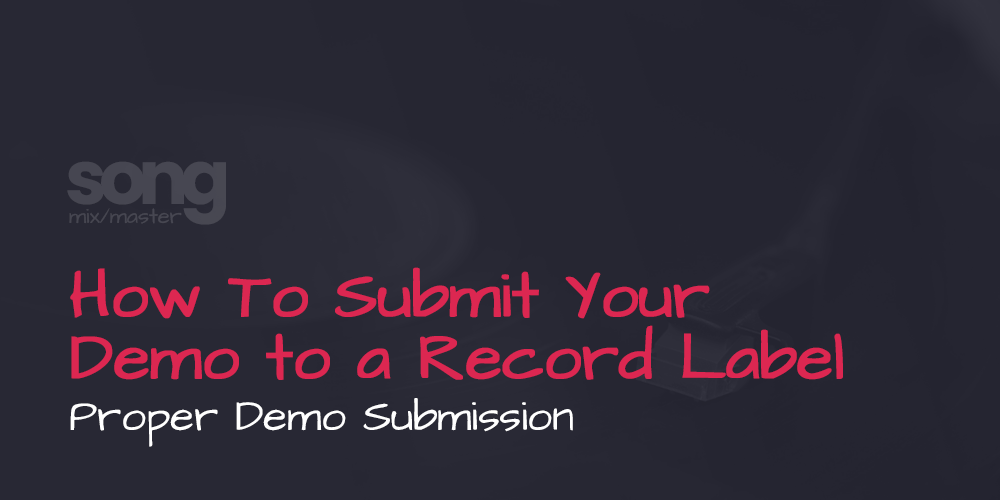Music Industry
How To Submit Your Demo to a Record Label
For aspiring musicians, making the leap from bedroom producer to the world stage can be an exhilarating but challenging journey. In this article, we’ll explore the critical process of submitting demos to record labels and how it can shape your music career. After all, record labels are not just gatekeepers but valuable allies in bringing your music to the world.
The Significance of Record Labels
Record labels are pivotal in the music industry. They offer artists the essential support system needed to navigate the complex landscape of the music business. From marketing and distribution to promotion and, in many cases, financial support, record labels can be a musician’s ticket to broader recognition.
However, it’s crucial to approach record labels wisely and with a strategy in mind to ensure your demo gets the attention it deserves.
Research and Targeting
Before sending your demo, research is paramount. Understand the landscape of record labels and identify those that align with your music style and aspirations. Don’t rush to contact big labels if you’re a relatively unknown artist. Instead, focus on labels that cater to your genre and career stage.
Here are some tips for this stage:
- Create a list of record labels that match your musical style.
- Investigate the artists signed by these labels to see if your music fits their roster.
- Check if the labels are open to demo submissions. Some labels have clear guidelines on their websites.
Proper Demo Submission
Once you’ve identified the labels you want to approach, it’s time to send your demo. Here are some guidelines for ensuring your demo submission is effective:
- Avoid Email Attachments: Sending MP3 or WAV files directly as email attachments can lead to formatting issues. Instead, upload your demo to a platform like SoundCloud, Dropbox, or your website and include a link in your email.
- Personalize Your Pitch: Tailor your email to each label. Address them by name and briefly explain why you believe your music is a good fit for their roster. A generic, one-size-fits-all message is less likely to grab their attention.
- Respect Their Submission Guidelines: If the label has specific instructions for demo submissions, follow them diligently. Ignoring these guidelines may lead to your demo being overlooked.
Be Patient and Persistent
Rejection is a natural part of the music industry, and even the most celebrated artists faced it at some point in their careers. If you don’t receive a response or if your demo is declined, don’t be discouraged. Here’s what to keep in mind:
- Timing Matters: Labels receive numerous demos, and it can take time for them to review submissions. Be patient and allow a reasonable window for them to respond.
- Rejection Is Not a Dead End: Rejection doesn’t equate to the end of your music career. Use feedback from labels as an opportunity to grow and refine your work.
- Stay Committed: As the story of the hit song “What is Love” by Haddaway illustrates, even successful artists faced rejection. Continue making music and honing your skills. Consistency and growth are essential in the music industry.
In the ever-evolving world of music, sending the right demo to record labels is a crucial step for any musician looking to expand their reach. Remember that each rejection is an opportunity to learn, adapt, and improve.
With perseverance, a strategic approach, and the right demo, you can elevate your music career and find your place in the global music scene. Don’t give up, and keep making the music you love.


Disclaimer: Any references to any brands on this website/webpage, including reference to products, trademarks, brands and companies, are provided for description purposes only. We don't have any association with or endorsement by these brands or companies. Some of the links on our blog may be affiliate links. This means if you click on these links and make a purchase, we may earn a commission at no extra cost to you.
Check Out My New Fabfilter Pro-Q3 Presets Pack!
You may also like to read...
My Top 10 Best EQ VST Audio Plugins I Use in 2024
How To Inverse EQ & Match EQ Using Fabfilter Pro-Q3
Soundtoys’ Reverb Revolution: Little Plate vs. SuperPlate
The Art of Song Mixing: Techniques for a Pro-Level Sound
The Best Multiband Compressor VST Plugins in 2024
Mastering Loudness: Best Strategies for Maximum Loudness
Book My Mixing & Mastering Services